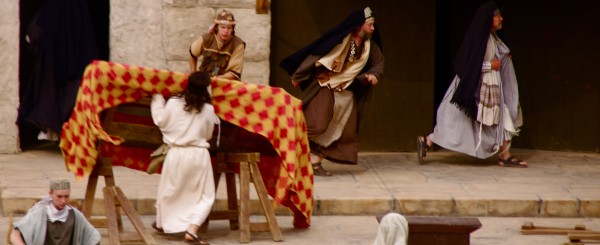Jesus’ bad example: Overturning tables in Phoenix
Image by Dave King http://www.flickr.com/photos/djking/3728775956/
Oh how I wish Jesus had set a better example!
Let’s be reasonable here. He should have proposed his prophetic action in consultation with the religious leadership far in advance of the Passover feasts. This would have reduced so much stress for the Pharisees and scribes.
He shouldn’t have made his case using sacred scriptures. Too risky, too radical, too much playing his religion card like he knew it all. Why did he have to bring Isaiah or Jeremiah into this, crazy activists claiming God’s house for foreigners, eunuchs and the like! One issue at a time now! How dare he come to the temple with an agenda!
He certainly should have worked within the structures to ensure no one would be offended, no one would risk the chance at dialogue due to untimely, unvetted mention of certain outcasts. Didn’t he know that if you want to include these people, you have to exclude those people.
He should have toned it down at least a little, no name-calling nor blocking pedestrian traffic in the temple. And what’s with the whip of cords!?
Read more and get involved over at overturningtables.org!
July 1, 2013 activism, Allyhood, Anabaptism, antiracism, Current Events, Exclusion, Gender, Group Identity, Immigration, Indigenous, LGBTQ, Mennonite Church USA, Peace & Peacemaking, Polarization, Power, Privilege, Race, Social justice, Spiritual Life Read more >
